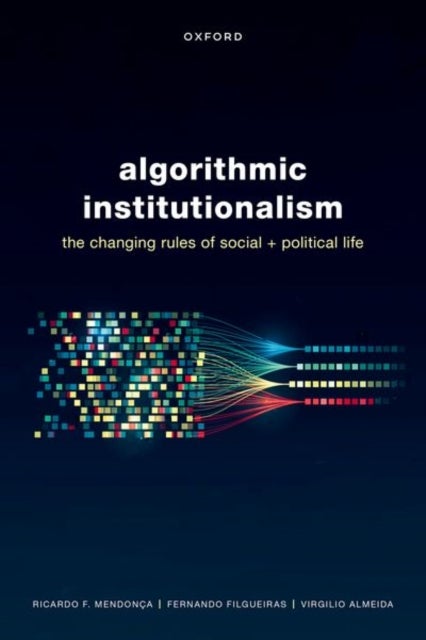
Algorithmic Institutionalism av Prof Ricardo Fabrino (Associate Professor Associate Professor Federal University of Goias) Mendonca, Prof Virgilio (Pr
999,-
Algorithmic Institutionalism is the first book to conceive algorithms as institutions in contemporary societies, focusing on different dimensions of how they structure decision-making and enact power relations. In many situations in contemporary societies, algorithms structure social interactions, resulting in patterns of action and human behavior in collective contexts. Almeida, Filgueiras, and Mendonca discuss how algorithms are gradually occupying an institutional space in societies, deciding on different aspects of social life and shaping collective and individual human behaviors. As institutions, algorithms work as decision systems that define what is allowed, hindered, facilitated, or made impossible as well as positions within society''s organizational structures. Algorithmic institutionalism uses the perspective of institutional theories to explain the functioning of these decision systems and how they establish patterns and norms that affect human behavior and lead to deep cha








